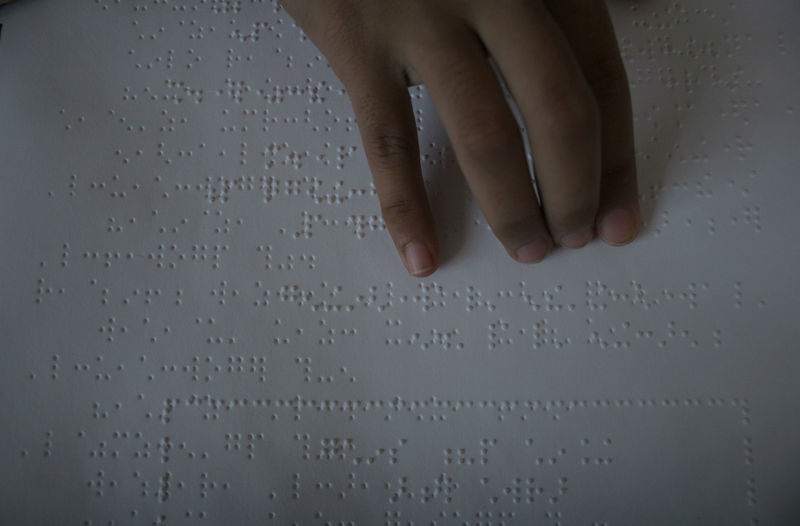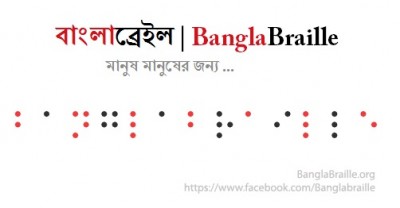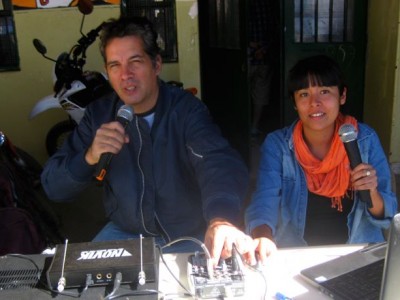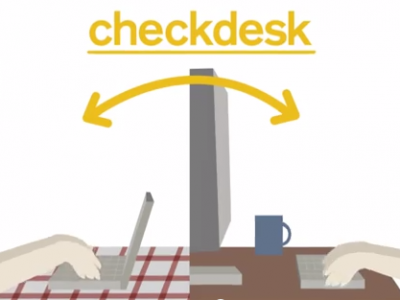
Blind students study verses from the holy Koran in Braille. urabaya, Indonesia. 18th August 2011. Image by dJoko Kristiono. Copyright Demotix (18/8/2011)
Bangladesh has made great strides in education, delivering nearly 300 million free text books to 37 million students across the country at the beginning of the school year.
However, an important group was left out: 50,000 visually impaired children in the country went without textbooks. This would be an impetus to create Banglabraille, an innovative project, solving the problem through crowdsourcing
The Bangladeshi government printing presses have only one – faulty – braille printer unable to take on the workload of printing adapted text books in time.
Multiple factors kept individuals or organisations from printing books themselves: the high price ($80,000) of an industrial-standard braille printer. Furthermore, the government e-book project has the textbooks available online in pdf format, but the lack of Unicode-formatted texts for existing books made the process more complex. Thus, many visually impaired students usually did not receive books until the middle of the year, falling behind their curriculum schedule. Thus began the Banglabraille project.
Ragib Hasan, an assistant professor of computer science at the University of Alabama at Birmingham, launched a Facebook group to address the problem. Ragib is a pioneer of Bangla Wikipedia since 2006, and is the founder of the first and largest open online education platform in Bangla. The site, Shikkhok.com, won a number of awards – including the 2013 Google RISE Award.
Last year in June Hasan wrote on the Sachalayatan Blog about Bangla Braille Books:
এই সমস্যাটা সমাধান করতে পারি কিন্তু আপনি-আমি- আমরা সবাই।
শিক্ষাবোর্ডের সাইটে অনেক পাঠ্যবইয়ের পিডিএফ রাখা আছে। আপনি ফেইসবুকে বা অন্যত্র যে সময়টা দেন, তার অল্প একটু সময় নিয়ে দিনে ১টি করে পাতা টাইপ করে দিন। ডঃ মুহম্মদ জাফর ইকবাল স্যার একটা স্বল্পমূল্যের ব্রেইল প্রিন্টার তৈরী করেছেন। উনার সাথে মেইলে যোগাযোগ হয়েছে। উনি জানিয়েছেন, বইয়ের ইউনিকোড কপি পেলেই উনার প্রিন্টারে বইগুলা ছেপে এই অন্ধ শিশুদের কাছে পৌছে দেয়ার কাজ শুরু করা যেতে পারে।
একজন দৃষ্টিপ্রতিবন্ধী শিশুর কাছে জ্ঞানের আলো, বইয়ের ঘ্রাণ পৌছে দেয়ার জন্য এতটুকু সময় কি দিতে পারবেন না?
You and me, everybody can solve this problem.
The education board site has many textbooks in pdf format. You can take some time from your daily time on Facebook or other social media sites for a productive exercise. Please do type one textbook page in Unicode every day. Professor Dr. Md. Zafar Iqbal of Shahjalal University of Science and Technology had invented a low-priced Braille printer. I contacted him and he informed that only texts in Unicode format are required to start printing the books.
Can’t you spare a little time per day for thousands of visually impaired students?
The Facebook group began crowdsourcing volunteer-powered typing of textbooks in Unicode. The next step was printing, but this was a costly process. Printing one Braille textbook totals around BDT 1,500 ($20). To compensate, the project soon added a volunteer-powered audio book project for those students who do not have access to the printed texts, but who were able to download books from the Internet. With various free recording and editing programs and apps, volunteers were able to read and record a chapter from a book in minutes.
The over two thousand volunteers include all sorts of professionals – engineers, doctors, teachers, students, corporate employees; mostly youths from home and abroad who put their hands together in the exemplary venture.
The work process is simple. The volunteers started a thread on a particular textbook in the Facebook page, and split the workload of each chapter among themselves. For the audio project, each volunteer started recording a book page by page, and uploaded in Dropbox. The project coordinator compiled the audio files.

So far, more than hundred books of class I to class IX-X have been worked on. Some of them have already been released, and a large number of books are still in the process of editing and will be available soon. These audio books can be downloaded free of cost and the digitized books can be downloaded and printed using Braille printer.
Bangla Braille project won both the Jury Award and People's Choice Award at the Deutsche Welle Best Of The Blogs (BOBS) 2014 awards under the category Best Innovations. Jury member of BOBs Shahidul Alam of Bangladesh said:
The project has fundamentally improved the lives of many students in Bangladesh and is fighting against a problem that authorities in the country have criminally neglected.




1 comment